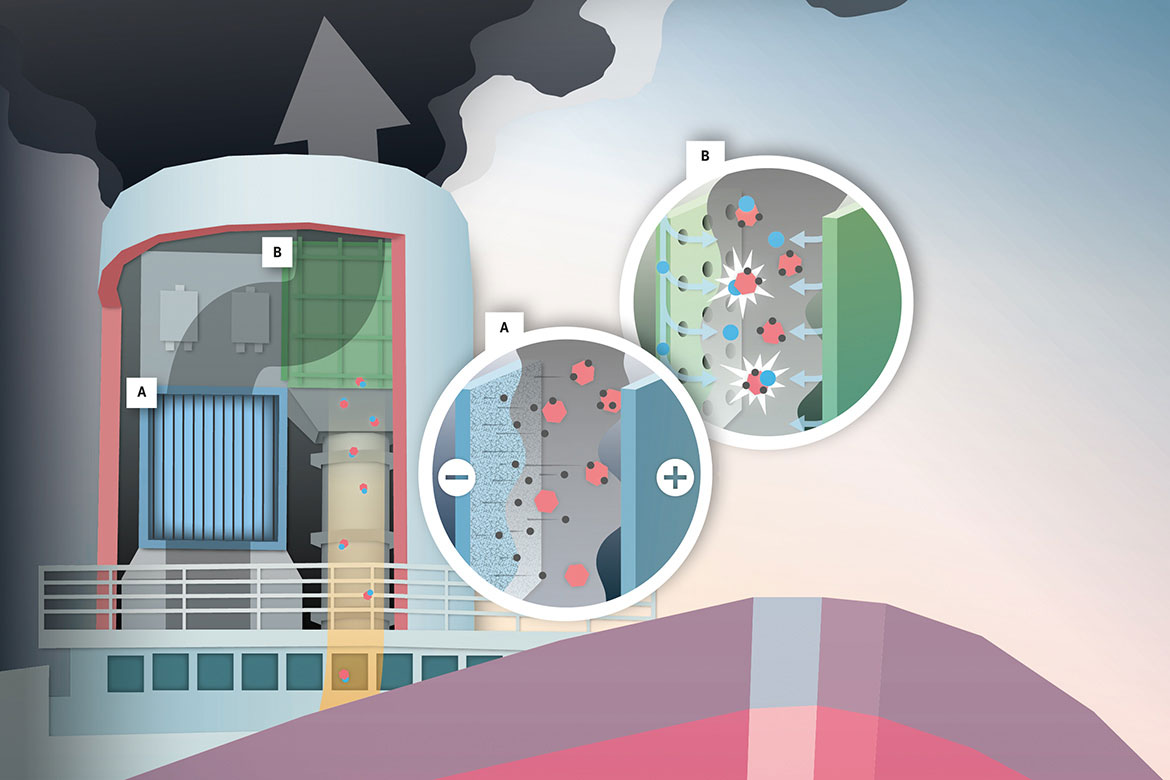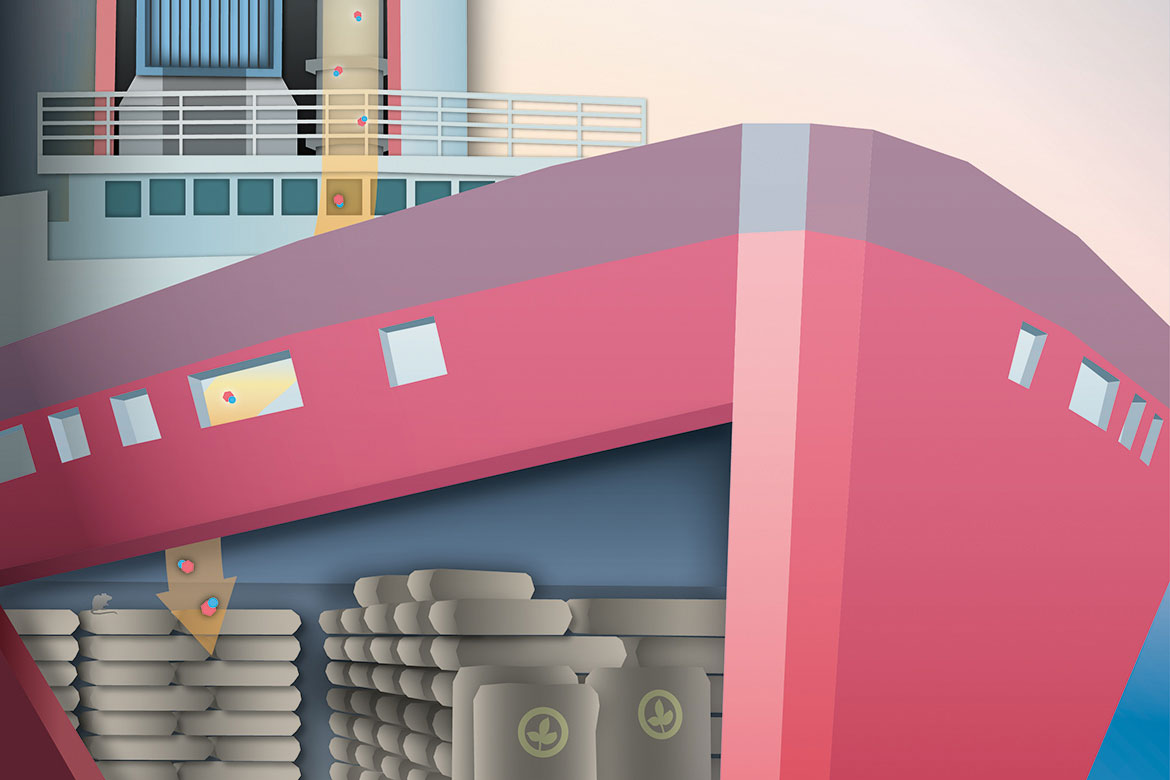From fumes to fertiliser
An EPFL spin-off has developed a way to scrub exhaust gases from ships: a combination of electricity and chemistry helps reduce air pollution.

Illustration: ikonaut
Ships are an energy-efficient means of transporting goods. But their diesel motors still emit many pollutants into the atmosphere, including sulphur oxides. The International Maritime Organization has ruled that global fleets must reduce sulphur emissions by 2020.

Illustration: ikonaut
The EPFL spin-off Daphne Technology has developed a new system for capturing sulphur and nitrogen oxides.
A) First, the exhaust gases pass along electric metal plates coated with titanium-oxide nanowires. Their structure lets electrons jump onto passing pollutant molecules, which starts chemical chain reactions.
B) Then a urea solution is sprayed into the gases; this transforms the pollutants into a powder that falls down into a collector.

Illustration: ikonaut
The ammonium sulphate and ammonium nitrate that are then collected are valuable fertilisers. This offers an ecological advantage, because other scrubbing systems simply dump their waste products into the sea.




